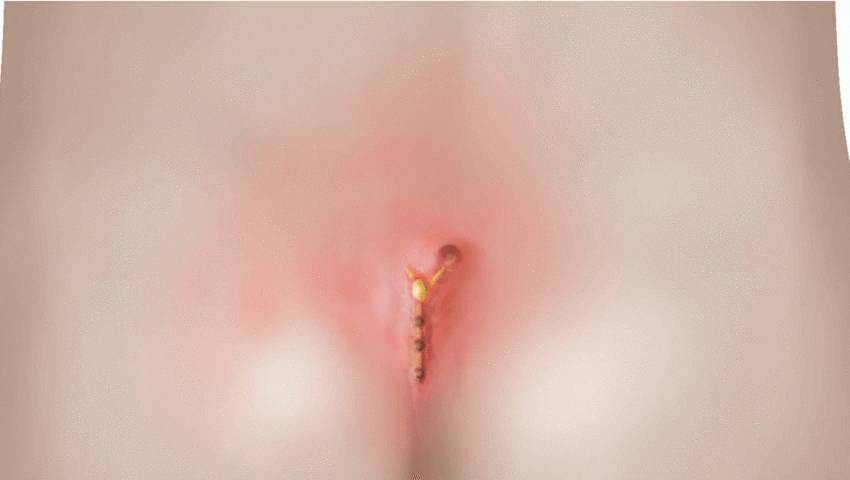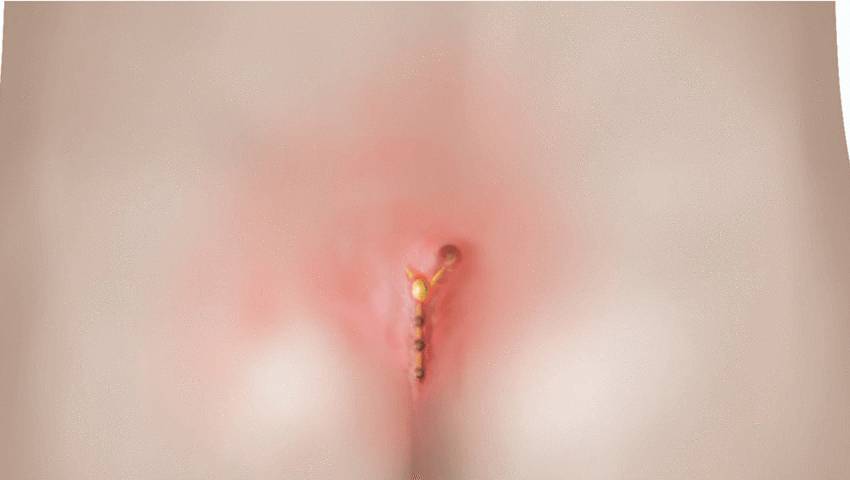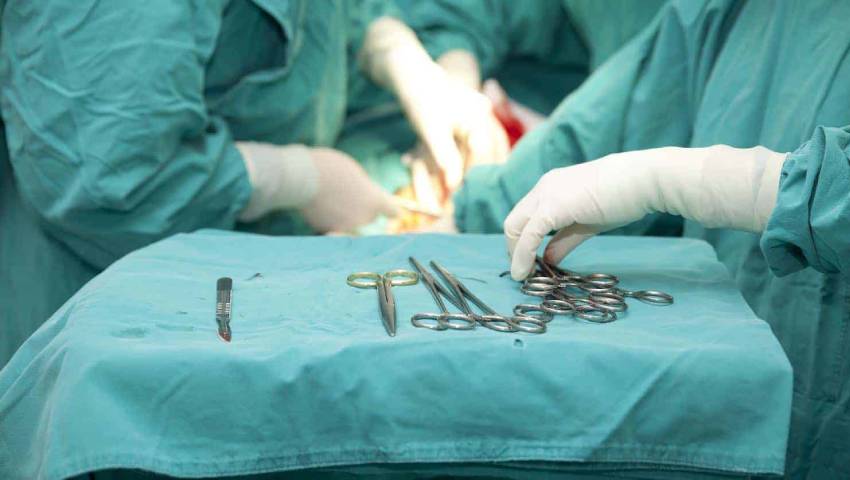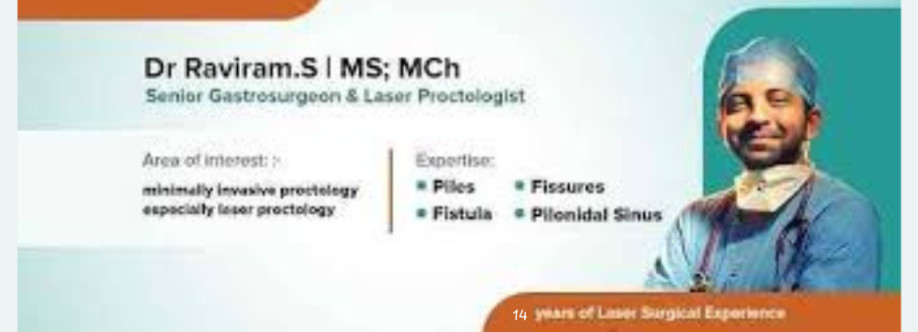Pain 2 MONTHS after surgery is NOT normal!
Experiencing pain after surgery is common, but it’s usually short-lived and part of the natural healing process. However, if the pain continues for two months or more, it’s a sign that something may not be right. Many patients wonder, “Is this normal?” or “How long should recovery take?” Persistent post-surgery pain could indicate complications like infection, nerve damage, or improper recovery. If you’ve undergone procedures like piles surgery or other colorectal treatments, it’s important to address this pain promptly.
In this guide, we’ll uncover the causes, management tips, and cutting-edge therapies like laser therapy for prolonged postoperative pain.
Understanding Post-Surgery Pain: What Is Normal?
It’s common for patients to experience some level of discomfort after experiencing surgery. However, it’s necessary to indicate between temporary discomfort and persistent pain that may be a sign of complications. Postoperative pain is typically managed by pain medications, rest, and sometimes physiotherapy. For most procedures, this discomfort fades within a few weeks.
However, if the pain lasts for more than 2 months, it may indicate an issue like post-surgery complications, infection, or problems with the recovery process that require professional evaluation.
Common Causes of Persistent Pain After Surgery:
While some pain after surgery is expected, persistent pain can be caused by a variety of factors. Here are the most common reasons why people experience chronic postoperative pain:
Infection or Inflammation: Infections at the surgical site can result in prolonged pain. Bacterial infections or even superficial irritation can delay healing and increase discomfort. If you experience fever, redness, or discharge from the incision site along with pain, you should consult a healthcare provider immediately.
Nerve Damage or Irritation: Sometimes, nerves near the surgical site may be damaged during surgery. Nerve irritation or neuropathy can lead to ongoing pain that persists long after the wound has healed. This type of pain can often feel like burning, stabbing, or tingling sensations.
Scar Tissue or Adhesions: Surgical incisions can cause scar tissue to form beneath the skin, which can lead to painful adhesions. These bands of tissue can restrict movement or cause pulling sensations, resulting in discomfort months after the surgery.
Unresolved Medical Conditions: In some cases, the underlying issue that required surgery may not have been completely resolved. For instance, in piles surgery, there may be residual hemorrhoidal tissue or other conditions that cause ongoing discomfort.
Improper Healing or Surgical Error: Though rare, improper healing or surgical errors can lead to complications. In these instances, it is vital to seek advice from a skilled and experienced surgeon to understand what went wrong and how it can be fixed.
Managing Post-Surgery Pain: Treatment Options:
If you’re still feeling pain after surgery, especially months later, various approaches can help. Below are some of the most effective treatment options available:
Pain Management Medications: Painkillers prescribed by your doctor can provide relief in the short term. However, medications should be used cautiously to avoid dependency. For ongoing discomfort, your doctor might recommend a combination of anti-inflammatory drugs, local anesthetics, or nerve-blocking injections.
Physical Therapy and Rehabilitation: Physical therapy plays a key role in recovery after surgery. It helps to strengthen muscles, increase flexibility, and promote overall healing. A trained physical therapist can design a personalized program to address any limitations or stiffness you may have as a result of surgery.
Laser Treatment for Postoperative Pain: Laser treatment for postoperative pain is an innovative and non-invasive therapy that has shown great promise in managing chronic post-surgery discomfort. Using a laser, this treatment targets the tissues to stimulate healing, reduce inflammation, and promote blood flow, accelerating the recovery process.
Dietary Adjustments and Supplements: Nutritional supplements and proper hydration can support the healing process. Anti-inflammatory foods, such as omega-3 fatty acids, vitamin C, and turmeric, can help reduce inflammation and speed up tissue repair.
Psychological Support and Counseling: Chronic pain can take a toll on your mental health. Seeking support from a counselor or psychologist may help you manage anxiety or depression associated with persistent pain. Cognitive-behavioral therapy (CBT) has been proven to help people cope with chronic pain.
Who to See for Persistent Post-Surgery Pain?
If you’ve had surgery and are still experiencing pain beyond the normal recovery period, it’s crucial to see a specialist who can diagnose the underlying cause. Consulting with a colorectal surgeon in Thrissur like Dr. Raviram S., the expert behind Thrissur Piles Clinic, can help determine whether your symptoms are due to unresolved issues from the procedure or if there’s an entirely different cause at play.
The best proctologist in Thrissur, Kerala, will perform a detailed examination and might recommend additional tests like imaging or a biopsy to rule out complications.
Specialized Care at Thrissur Piles Clinic:
At Thrissur Piles Clinic, under the expert guidance of Dr. Raviram S., patients receive comprehensive care for post-surgery recovery, including specialized attention to pain management. As a recognized piles surgery specialist in Thrissur, Dr. Raviram provides personalized care and cutting-edge treatments to ensure optimal recovery.
The clinic specializes in laser treatment for postoperative pain, a cutting-edge, non-invasive solution that has transformed recovery after procedures like piles, fissures, fistula, and other colorectal surgeries. This modern approach minimizes discomfort, reduces inflammation, and promotes long-term healing, making it the preferred choice for patients seeking optimal care and lasting relief.
Tips for Faster Recovery After Surgery:
Rest and Recovery: Give your body time to heal and avoid strenuous activities that may strain the surgical site.
Stay Hydrated: Water helps your body heal quickly and blush out toxins that may contribute to inflammation.
Follow Post-Op Instructions: Always adhere to your doctor’s advice regarding medication, care of the surgical site, and activity restrictions.
Monitor for Complications: Keep an eye on symptoms that may indicate complications, such as increasing pain, swelling, or fever.
Healthy Lifestyle Choices: Eating a balanced diet, avoiding smoking, and limiting alcohol intake can speed up the healing process.
Conclusion: Your Path to Recovery
Pain 2 MONTHS after surgery is NOT normal and requires immediate medical attention. Persistent pain could indicate complications like infection, nerve damage, or incomplete healing. Seeking care from a qualified specialist ensures timely diagnosis and effective treatment. At Thrissur Piles Clinic, Dr. Raviram S, a trusted Proctologist in Thrissur, offers advanced solutions like laser therapy for seamless recovery. If you’re considering fistula surgery or any other postoperative pain treatment, choosing the best surgery recovery care in Thrissur can make all the difference.
For expert advice and the best post-surgery care, contact 9961001199 Thrissur Piles Clinic and schedule a consultation with Dr. Raviram S, who specializes in comprehensive care for post-surgery pain.
https://www.thrissurpilesclini....c.com/pain-2-months-






